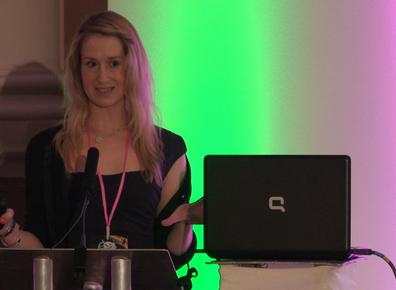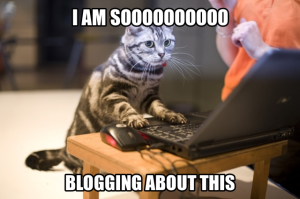
Do newspapers have any relevance in a digital age?
Journalism was always something which massively appealed to me almost as soon as I was able to comprehend what the word meant. Admittedly it was potentially because my talents lay on the ‘arts’ side at school (think humanities, languages, English literature etc) hence I was never going to be a nuclear scientist, but also because I was raised to believe that those great scribblers de nos jours (think late eighties, early nineties) casually dealing out witticisms (think Alan Coren) or wisely dispensing their caustic apercus into the failings of humanity (think Auberon Waugh et al) were somehow blessed with superior talents that ordinary mortals could never hope to even vaguely touch upon.
At this stage I could tell you that I was wrong, that, from mingling and working in the world of journalism I rapidly realised that many such sages were in fact jaded, second-rate alcoholics, whose talent was no less than a simple ability to capture a moment like a camera and convey it to a hungry audience, that there was no real depth, no profound meaning or juicy meat in their stories. Yes I could tell you this and it could indeed be a fascinating detour.
But I won’t.
Instead I’ll say imagine a child growing up today and looking at the profession with fresh eyes. Would he/she perceive our noble scribes with such admiration? Would he/she be able to name four or five distinctive, famous print journalists that inspired them to the same degree?
I doubt it reader, I doubt it.
Why, one of my child-of-the-eighties peers may incredulously ask? Well, because precluding television, where many a grand reporter may still comfortably bask in the limelight unchallenged due to a pretty much undisrupted marketplace (and with the BBC’s current access to what seems to be unlimited funds this seems unlikely to change) the print media is proving to be entering a period of profound, unmitigated disaster when it comes to their business models and lack of ability to compete with smaller, cheaper, up-and-coming online news sources. A child or indeed a teenager, has a range of options when it comes to online news and let’s just put it this way, it’s highly unlikely they’re buying newspapers. Granted, many of this age group don’t massively read news anyway, but let’s face it, even the most politically and socially aware youngster is unlikely to be able to distinguish between the quality of offerings from a Huffington Post blogger and a random columnist in the Telegraph.
This is because for them most of the Fourth Estate merge into this mass called “the internet” where everyone has something to say, be it above or below the comment line. And when even the most reputed of journalists can be called out and held to account by the public, picking apart their arguments (excluding abusive trolling which is of course another and far more serious issue) the presumption of yesteryear – that journalists were mighty defenders of the truth and that it was a noble profession far beyond the reaches of the masses – is no longer a given.
The fact is that certain previously assumed beliefs are constantly being challenged by the democratisation of knowledge in the digital space. And of course, with more disruptive and controversial sources holding those in power to account (think Guido Fawkes’ Blog which apparently has most of Westminister signed up to its newsletter), those tenuously holding the reins of power and their supporters in the mainstream media are under the microscope more than ever before. As well as this, Jeff Bezos’s recent purchasing of the Washington Post is likely to set the agenda for future online business models to come. With subscriptions having halved and a loss of advertising revenue due to smaller and cheaper rivals, something had to change – which I’ve written about in greater depth here. Although Bezos probably doesn’t quite know what he’s going to do with it yet, it’s clear that the Amazon founder is set to try to do extraordinary things with Washington DC’s most read political rag.
The ironic thing is that individual journalists are, at the same time, helped and hindered by this new order. Whilst some have admittedly seemed quite shocked at the realisation that in fact, much of the public completely disagree with their viewpoints, others have been quicker to adapt, building on their online tribes and communities which have in turn, boosted their own popularity. Hence, whilst being a member of this gilded profession no longer grants automatic respect, the successful 21st century journalist unashamedly displays his/her prejudices and makes a career out of it, as he/she knows that nothing can be taken for granted.
The interesting thing is that the internet, whilst relying on collectivism in many ways, also allows the independently-minded to build and prosper from their own efforts more than ever before. It’s why Twitter breaks news faster than most broadcast outlets, it’s why there’s no one reliable source of news that people turn to for a trusted opinion. Once upon a time the BBC was used as the mouthpiece of politicians to announce big events such as war, coronations etc. Although it would undoubtedly play an important role now, it’s got massive competition in the shape of real-time, citizen journalists, out and about telling their own and countless others’ stories, all from a different vantage point.
To conclude, it seems that extraordinarily the truth, once more finite in a simpler, pre-internet world, has been exposed as being exactly the opposite of this – instead vulnerable to the capriciousness of leader writers and moral arbitrators, tainted by partisan views. Therefore the search for truth from our political and media classes has come full circle – those adhered to notions of the past have rendered facts malleable with a reckless disregard for moral (if we can call it that) absolutism. This has ensured that the conversation gets louder and plural opinions more evident, but it’s not yet apparent as to how we will make sense of the increased noise and what the impact will be on our society and current political structures.

